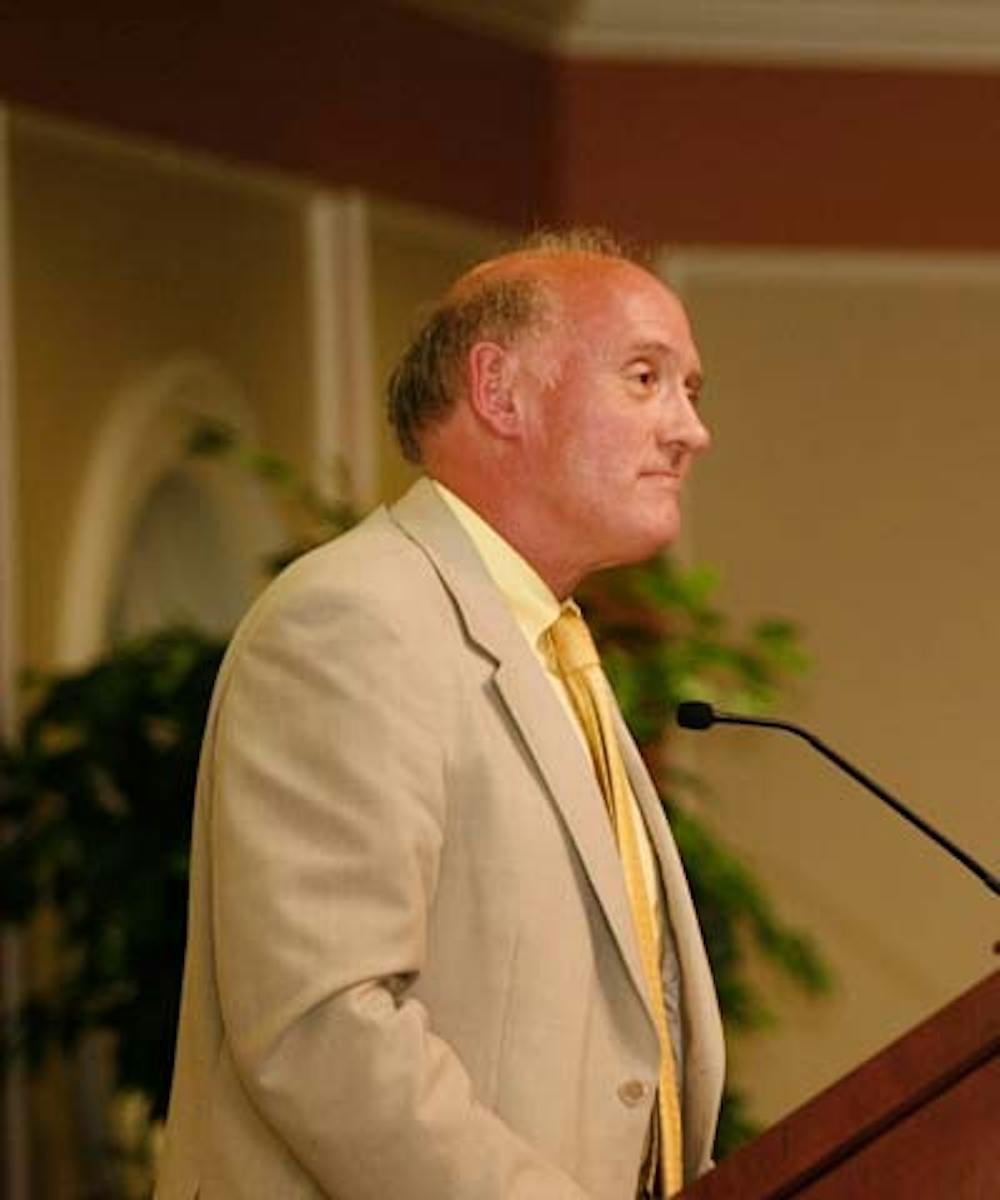Journalist Henry Villard was a sick and aging man when he wrote his memoirs at the turn of the 20th century. But he didn't forget to write about the time he waited for the train to Springfield in 1858, with a lanky Illinois statesman who would become one of America's most famous leaders.
The two were waiting at the small station on a late summer day for an overdue train when a thunderstorm began. They ran into an empty boxcar, squatted by the doorway and began talking.
Abraham Lincoln was in the middle of a tight senate race with Stephen Douglas and told Villard that when he had been a store clerk, his highest political ambition had been to become a state legislator. His friends convinced him to run for the U.S. Senate. He hadn't thought himself qualified for the position at first. He chuckled and told Villard he now thought he was qualified but doubted he could convince people to elect him.
"My wife insists that I am going to be senator, and president of the United States too," Lincoln said. He hugged his knees and laughed uncontrollably. "Can you imagine," he asked, between laughs, "such a sucker as me as president?"
The Jepson School of Leadership Studies opened on Friday its annual leadership forum, which this year is celebrating 200 years since Lincoln's birth. The series opened before a standing-room-only crowd in the banquet pavilion at the Jepson Alumni Center with a lecture by Richard Carwardine, Rhodes Professor of American History at Oxford University.
"Lincoln was no sucker," Carwardine said, opening his speech with the Villard's story. "The last thing any of us could call him was naive, and he himself was confident that he had what it took to lead."
Instead of the traditional American image of a kindly, jocular man who was anointed by God to lead America through the Civil War, Carwardine painted Lincoln as commanding and profoundly self-reliant.
Carwardine, whose lecture was titled "Wonderful Self-Reliance: Abraham Lincoln's Leadership," said that the key to Lincoln's success was not only his self-reliance, but his sound judgment.
"Self-reliance in and of itself is not the key to effective leadership," he said. "Lincoln's self reliance should impress us not in and of itself, but of the quality of decisions he took, and in the effectiveness of the courses of action he developed, while relying above all on his own intellectual resources."
Carwardine reiterated what historians have often pointed out -- that one of Lincoln's endearing qualities was his often self-deprecating humor. But Carwardine was careful to balance that image within the context of Lincoln's sense of self-worth.
Enjoy what you're reading?
Signup for our newsletter
"Lincoln was frequently self-deprecating," he said, "and was certainly no braggart, but neither was he falsely modest. He was, after all, a self-made man, and that self-making gave him confidence in his innate abilities."
Carwardine closed his lecture by responding to a recent debate among historians that if Lincoln -- and not Jefferson Davis -- had been president of the Confederacy, the South would have won its independence. Carwardine said that Lincoln derived his authority and purpose from his faith in the founding principles and the infrastructure already present in America.
"Lincoln," he said, "was best suited for the role of routine leader of an established policy. Lincoln's power came not from subverting the routine political system but from acting as the defender. But his is the achievement of a political master whose capacity bordered on genius."
Later, Carwardine said that Lincoln had the ability to mobilize the electorate and inspire people by recognizing a fundamental quality of Americans.
"You may have noticed," he said, "that in Britain, if somebody puts forward a proposal to make things better, he is immediately inundated with reasons why it is too difficult.
"In America it's not necessarily that way. There is an innate optimism, a belief that things could always be better. I think the best politicians in your history have recognized that."
Carwardine said he saw parallels between how Lincoln inspired people and the way Barack Obama and John McCain have been rallying people with their American stories and messages of change.
"That is why Obama has become so popular," he said. "Because he makes people believe that things could be better. He is a man from humble beginnings who has risen to be the senator from Illinois. And John McCain as well, a man who has suffered enormous hardship and has come through it stronger."
Sandra Peart, dean of the leadership school, said bringing Carwardine to Richmond to open the forum had been an easy decision.
"His position at Oxford is prestigious," she said. "And, he is the only British author to win the Lincoln prize."
The Lincoln Prize is an award given annually to an outstanding scholarly work in English on Abraham Lincoln, the American Civil War soldier, or a related subject. Carwardine won the prize for his work, "Lincoln: A Life of Purpose and Power"
Senior history major Chris Florio said he had been fascinated with Lincoln since his childhood and that he enjoyed the lecture.
"I like how he portrayed him as a man," he said, "and not a god like we see at the Lincoln Memorial."
The next forum event will be Oct. 7 at the Modlin Center for the Arts. President Edward Ayers will deliver a lecture called "What Lincoln Was Up Against: The Context of Leadership."
"I'm a little worried," Ayers said. "Dr. Carwardine set the bar pretty high."
Contact staff writer David Larter at david.larter@richmond.edu
Support independent student media
You can make a tax-deductible donation by clicking the button below, which takes you to our secure PayPal account. The page is set up to receive contributions in whatever amount you designate. We look forward to using the money we raise to further our mission of providing honest and accurate information to students, faculty, staff, alumni and others in the general public.
Donate Now



